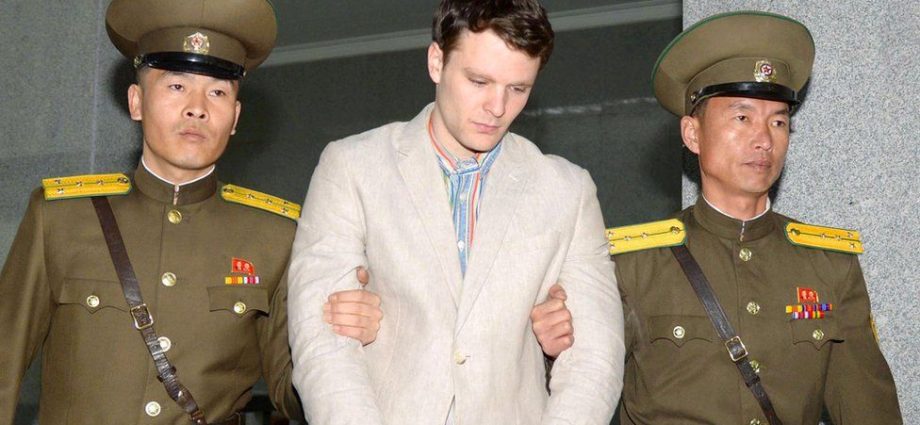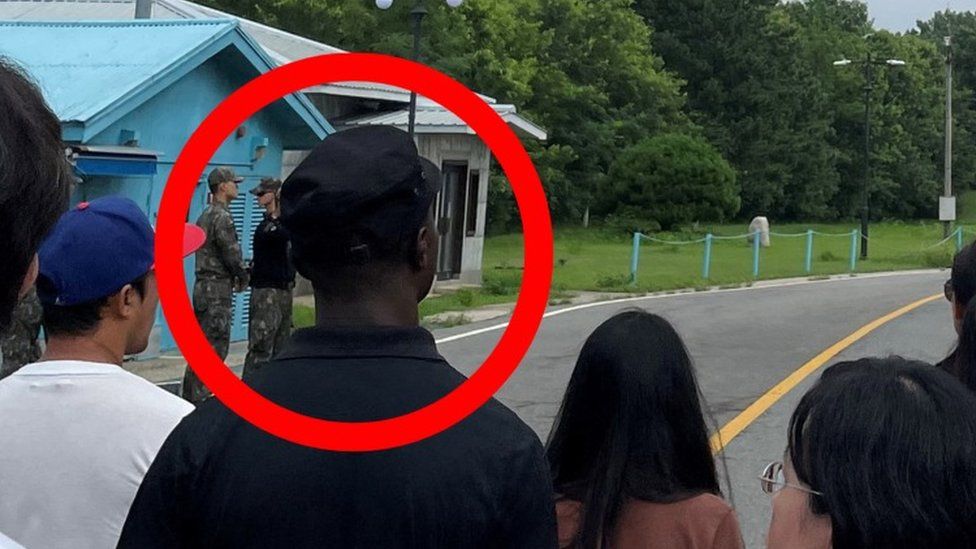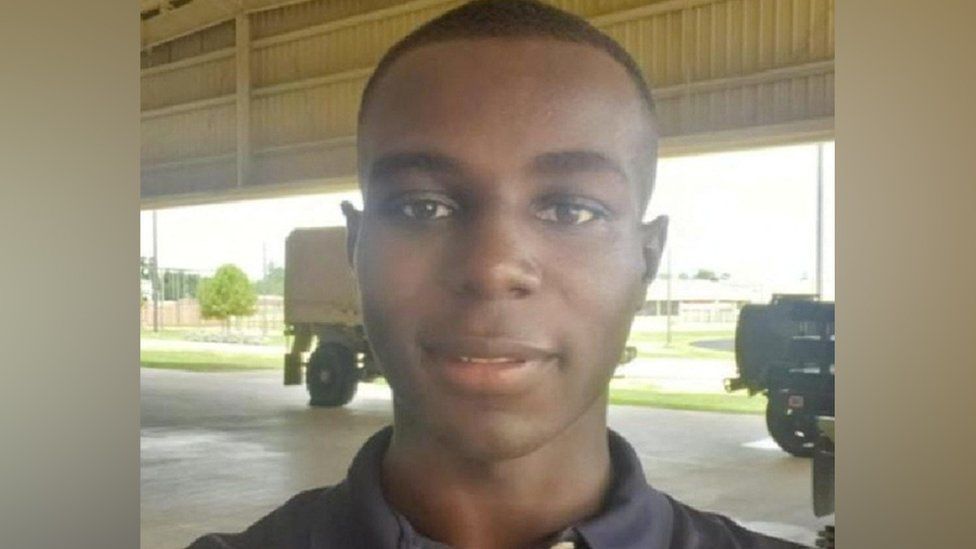
North Korea is not responding to attempts to negotiate the release of a US soldier who fled over its heavily-armed border, Washington says.
Private Travis King crossed the Demilitarised Zone (DMZ) dividing North and South Korea on Tuesday.
The Pentagon had contacted North Korea, a state department spokesman said. “My understanding is those communications have not yet been answered.”
There has been no word from the North on Pte King’s whereabouts or his fate.
The crisis comes during a particularly tense time with the North. Relations with the US have plummeted in recent years, as it has tested dozens of increasingly powerful missiles capable of carrying nuclear warheads.
On its travel advisory, the US tells its citizens not to travel to North Korea – one of the world’s most isolated states – due to “the continuing serious risk of arrest” and the “critical threat of wrongful detention”.
It is unclear if Pte King has defected or hopes to return.
Experts say such a low-ranking soldier would have little propaganda and intelligence value, which may prompt North Korea into releasing him – but what will happen to him remains highly uncertain.
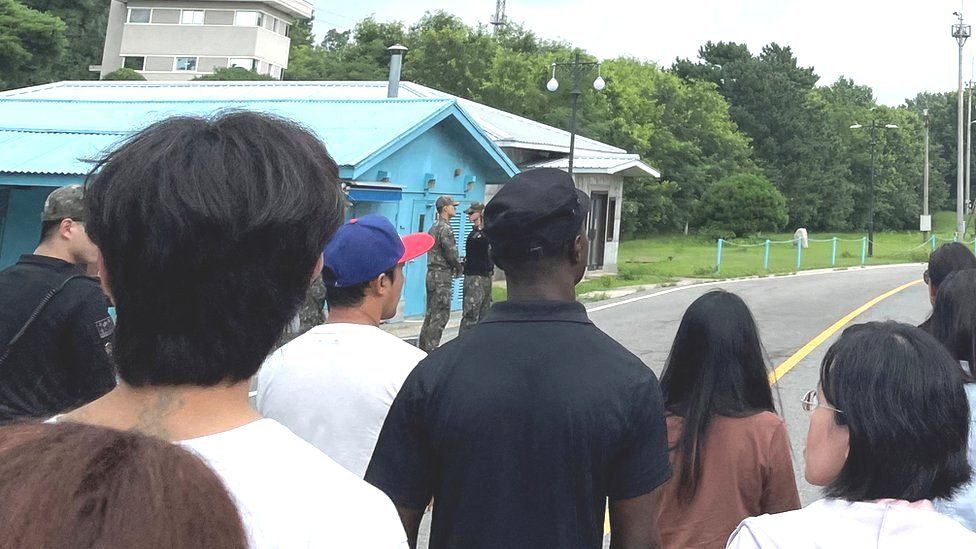
The lack of precedent makes it hard to foresee next steps – it’s been decades since a US soldier last defected to the North.
The fact that Pyongyang is not responding to US attempts to communicate is adding to the uncertainty.
Pte King was due to fly back to the US from South Korea, where he was based, to face disciplinary action.
But the 23-year-old did not board the plane when he parted ways with his military escorts at Incheon Airport near Seoul on Tuesday and instead embarked on an apparently pre-booked tour to the border – the details of how he managed to do that are still unclear.
US defence officials said the soldier “wilfully” crossed into the North over one of the most heavily-fortified areas in the world.
The DMZ has separated the two countries since the Korean War in the 1950s, in which the US backed the South. The war ended with an armistice, meaning that the two sides are still technically at war. Tens of thousands of US troops remain in the South.
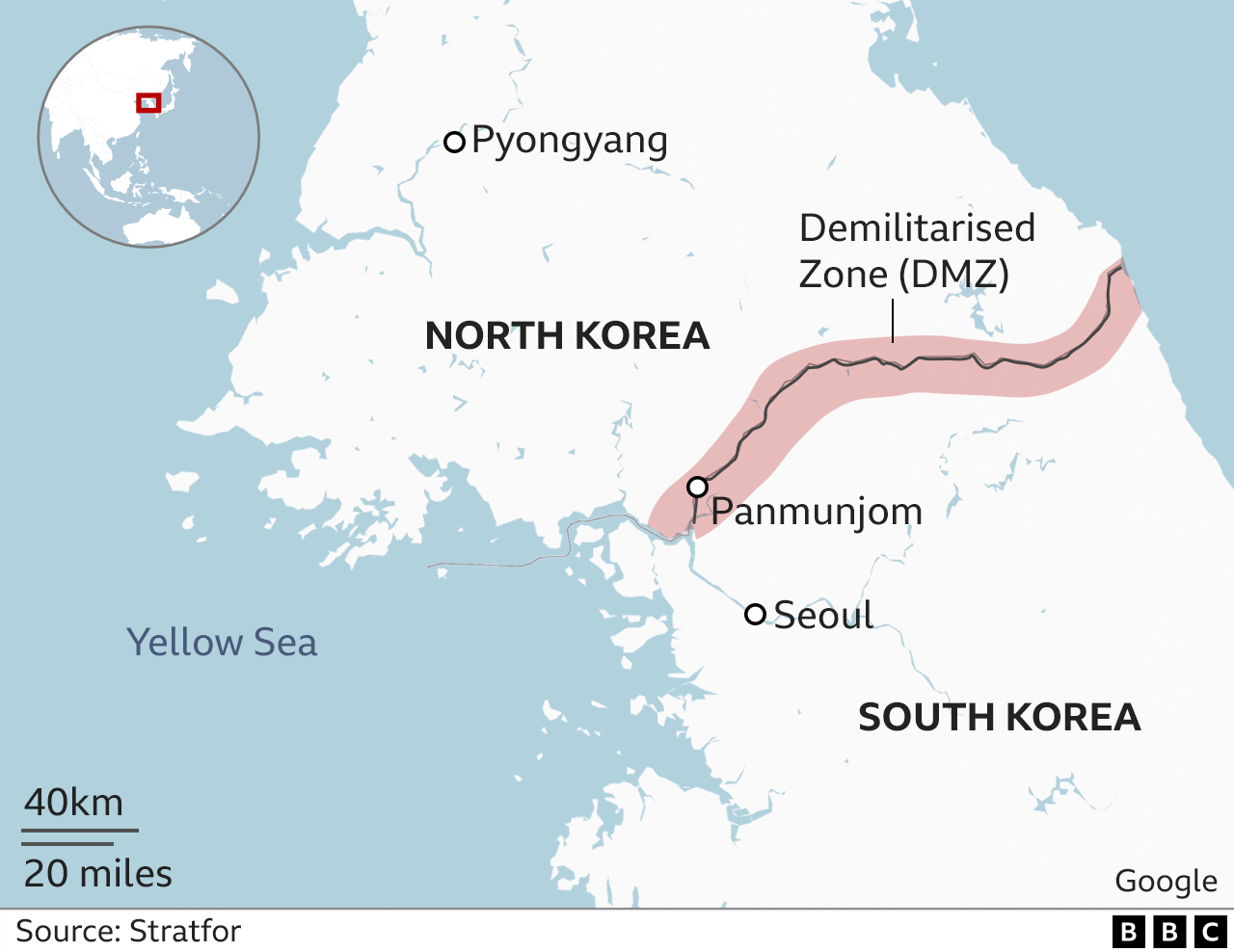
Pyongyang could use Pte King as a propaganda tool to criticise the US military, said James Fretwell, an analyst at Seoul-based specialist site NK News.
“King may well show up in North Korean state media at some point in the near future. But a lot depends on how long his interrogation, and maybe his Covid-19 quarantine, lasts,” he added. North Korea still maintains a strict border lockdown in response to the pandemic.
But Jenny Town, director of the Stimson Center’s 38 North Program, believes Mr King “does not make for a very ideal or compelling soldier story”.
“There have also been cases long ago of US soldiers who defected and were allowed to stay… But in those cases, there was political value to [their stories] and it was a very different time, and a different leader,” she said.
This video can not be played
To play this video you need to enable JavaScript in your browser.
Meanwhile, behind the scenes, diplomats and military officials are desperately trying to talk to the North Koreans to find out what is going on, but engaging them is not easy.
State department spokesman Matthew Miller said the US, which has no diplomatic relations with North Korea, has other channels to communicate.
He said department officials were engaging with counterparts in South Korea and Sweden to access information on Pte King – but US officials knew nothing of his current condition or whereabouts.
Given that the two countries do not have diplomatic relations, the Swedish embassy in Pyongyang tends to negotiate on behalf of the US. Currently its diplomatic staff are not in the country, because of the ongoing border closure since the pandemic.
Both the UN Command, that runs the border area, and the South Korean military have direct phone lines to the North Korean military, that they call daily to check in, though the North Koreans do not always pick up.
In recent years, a number of American citizens who illegally entered North Korea – excluding those convicted of criminal activity there – have been released within six months.
Some experts feel that the tensions between North Korea and the US and the impasse in bilateral talks means the North has little to gain in holding on to Pte King.
“For Pyongyang, it makes sense to find a way of extracting some compensation and then expel an American for unauthorised entry,” said Leif-Eric Easley, a professor of international studies at Ewha Womans University in Seoul.
“In the best-case scenario, the American soldier will return home safely at the cost of some propaganda victory for Pyongyang, and US and North Korean officials may have an opportunity to resume dialogue and contacts that went stagnant during the pandemic.”
-
-
10 hours ago
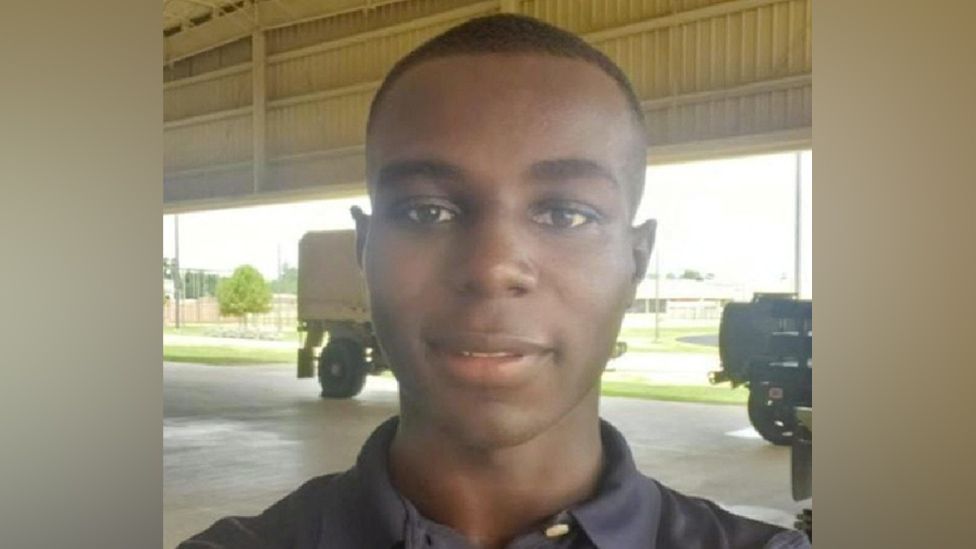
-
-
-
27 September 2017
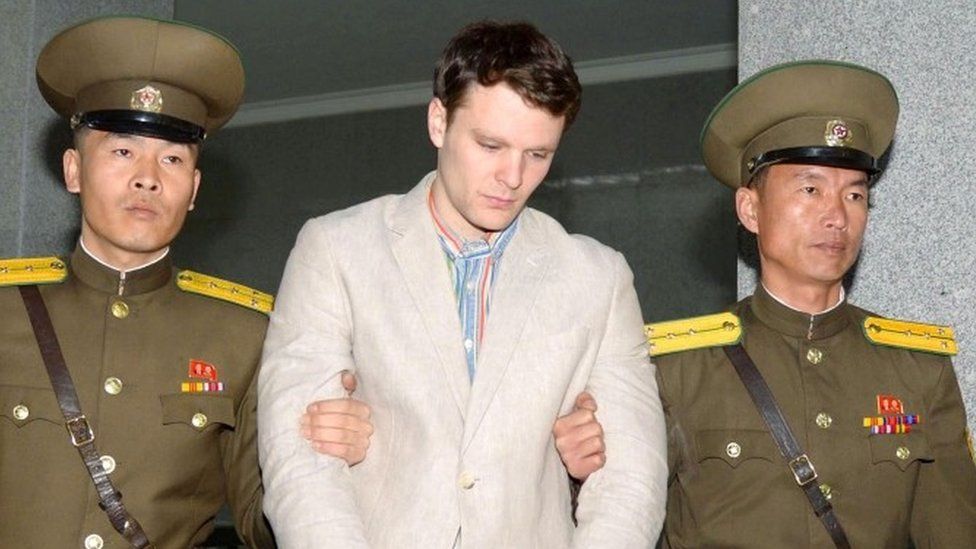
-
-
-
14 June 2017
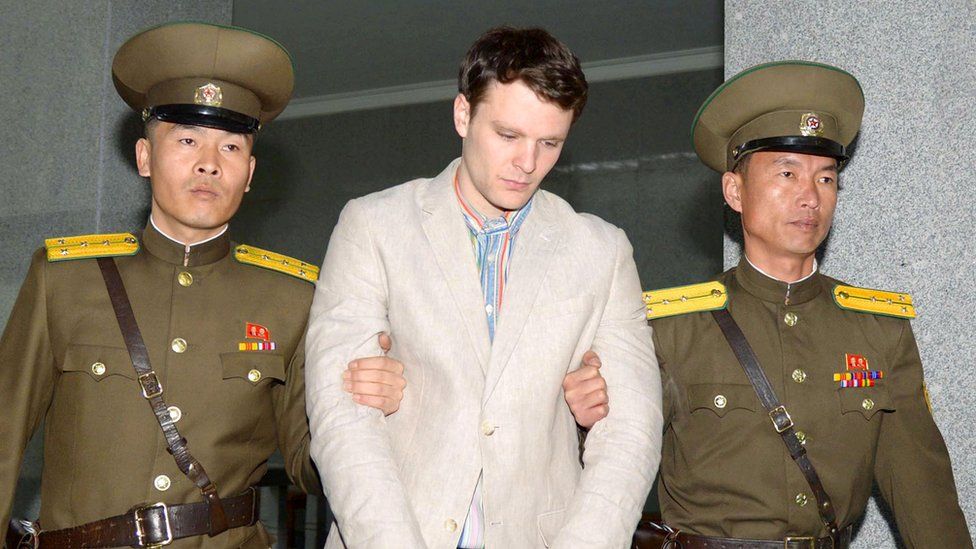
-

